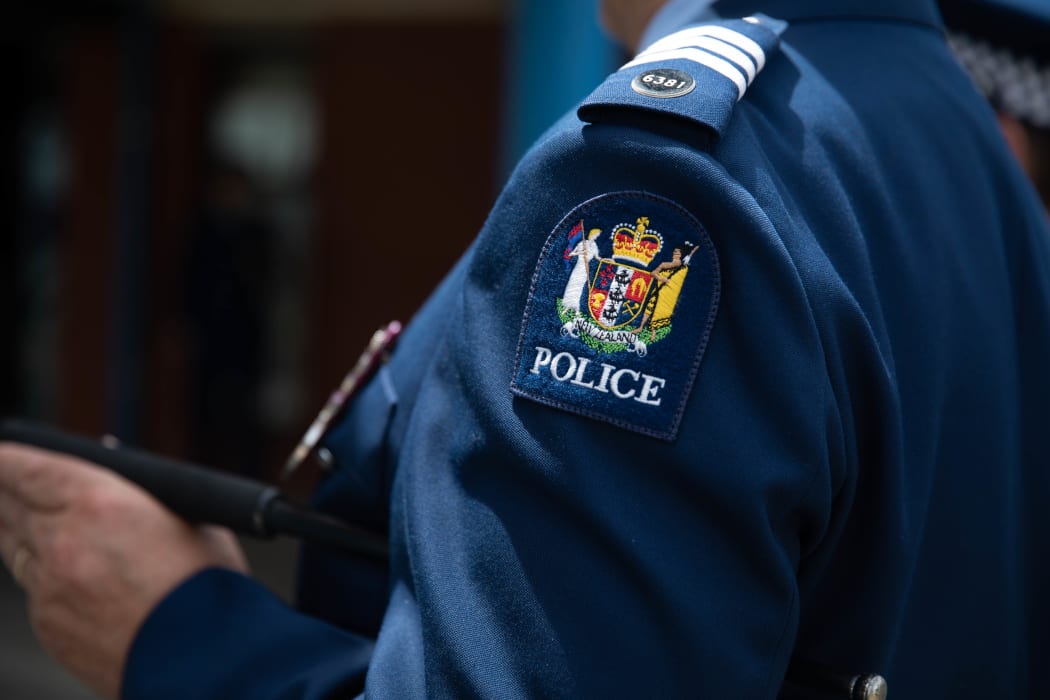Key events
Troll website dropped by internet infrastructure company following threats
Internet infrastructure company Cloudflare has bowed to public pressure and blocked malicious community forum Kiwi Farms after it systematically targeted trans people for harassment and an “escalation” in the number of threats made on the site.
Kiwi Farms is a notorious website that coordinates trolling campaigns against individuals and has recently begun targeting trans people and activists.
Members of the community singled out Canadian Twitch streamer and activist Clara Sorrenti by repeatedly posting their personal information online and making fake calls to emergency service providers in order to send law enforcement to her home.
Cloudfare CEO Matthew Prince initially resisted a community campaign pressuring his company to stop providing services to Kiwi Farms, saying previous efforts to take action against far-right websites 8chan and Daily Stormer set a precedent that prompted authoritarian regimes pressuring it to act against human rights websites.
Just as the telephone company doesn’t terminate your line if you say awful, racist, bigoted things, we have concluded in consultation with politicians, policymakers and experts that turning off security services because we think what you publish is despicable is the wrong policy.
To be clear, just because we did it in a limited set of cases before doesn’t mean we were right when we did. Or that we will ever do it again.
But in a post to Twitter on Sunday Prince said his company had taken action after “the threats on the site escalated in the last 48 hours” and “it became enough of an imminent emergency” that they could not wait for law enforcement to act.
We just blocked Kiwifarms. The threats on the site escalated enough in the last 48 hours that, in spite of proactively working with law enforcement, it became enough of an imminent emergency we could no longer wait for them to act. Details of our decision: https://t.co/xNnSXn65R6
— Matthew Prince
(@eastdakota) September 3, 2022
Kiwi Farms has been blocked in Australia and New Zealand for hosting the Christchurch terrorist video – but Australia lifted the block after the site stopped hosting the video.
For more on the campaign to force Cloudfare to drop its support for Kiwi Farms, read Guardian technology reporter Josh Taylor’s report:
Tasmania records no new Covid deaths
No one with Covid-19 has died in Tasmania overnight, with the state recording 115 new cases on Sunday morning, 28 people in hospital and no one in ICU.
ACT records no new Covid deaths
No one with Covid-19 has died in the Australian Capital Territory overnight, with the territory recording 122 new cases on Sunday morning, 92 people in hospital, one in ICU and one on ventilation.
ACT COVID-19 update – 4 September 2022
COVID-19 case numbers
New cases today: 122 (62 PCR and 60 RAT)
Active cases: 1,066
Total cases since March 2020: 203,197 pic.twitter.com/rlliaTnW9d
— ACT Health (@ACTHealth) September 4, 2022
Paul Karp
The opposition leader, Peter Dutton, derided it as a union talkfest, but the Albanese government achieved more than could reasonably have been expected from its jobs and skills summit.
Yes, some of it was held over from national cabinet earlier this week (the extra Tafe places, for example). Some items were a long time coming and dictated by the circumstances of massive workforce shortages (permanent migration up to 195,000 and a $36m investment to speed up visa processing). One policy was even a tweak of an idea suggested by Dutton in June (the relaxation of tax rules to allow pensioners to work more).
But, add to that the massive list of industrial relations reforms outlined by Tony Burke on Thursday intended to get wages moving again (and increase workers’ power) and Labor can rightly say the summit was a success.
For more on why Dutton will be hoping Australians weren’t paying attention to the skills summit this week, read Guardian Australia’s political correspondent Paul Karp’s analysis:
And that’s it for Brendan O’Connor – a lot there to go through but the skills and training minister looks calm and confident following the skills summit this week.
O’Connor is asked about measures to keep tradies in apprenticeships, but also crucially what the government was going to do to get people living with disabilities into the workforce – particularly an idea floated by Australian of the Year Dylan Alcott to reduce restrictions so people on the disability support pension can work while receiving support.
When we have a tight labour market we have an opportunity to make sure that people can access the labour market who have been locked out for years, including people with disability, First Nations people and long-term unemployed. We should be making sure that they’re not forgotten here.
This is an interesting response as the government has so far refused to raise social security payments to the poverty.
O’Connor is asked about $1.1bn being set aside for federal, state and territory governments to offer 180,000 fee-free Tafe places, noting that money is for 2023 and raising the question: what happens after that?
O’Connor:
We’ve been able to create five guiding principles to negotiate a five-year-long agreement with the states and territories. They are the deliverers of the sector but it needs reform. The sector but it needs reform.
Notionally we’re looking at the $3.7bn over five years from the commonwealth. That’s on top of what payments are made, subject to negotiation. We understand – we are a big funder of the VET sector. We need to make sure. But let’s be clear: we’ve got that commencing 21 January 2024.
O’Connor is asked abut whether the minimum pay for temporary skilled migrants – $53,900 – should be raised as it has not been increased for “more than a decade”.
O’Connor says the figure should be lifted:
We have to examine that. That meant that it’s fallen in real terms. Obviously if it’s nominally the same for nine years, we have to make sure it’s not about bringing people in to displace local workers. I think there must be a lifting of that measure.
Now on migration, O’Connor says the government is attempting to balance competing interests in raising the migration cap, filling skills gaps and ensuring a growing economy without eroding the bargaining power of Australian workers.
O’Connor:
What we had under the previous government, is Peter Dutton and Scott Morrison not understand immigration is also an economic portfolio. We have almost a million visas that are not processed. We have thousands of temporary holders who have been here for a decade in areas of skills shortage who can’t get permanent residency. We had the temporary visa holders not provided any jobkeeper or jobseeker flee the country. It was starve or leave.
We were left with greater skills shortages than should have been the case. That’s if the previous government understood the importance of immigration and temporary and permanent skilled migration to the economy.
O’Connor is asked about allegations that workplace relations minister Tony Bourke wrote to the Fair Work Commission flagging the government’s intention to remove the right of employers to terminate agreements at a time when Dominic Perrottet is threatening to tear up an enterprise agreement with rail workers in New South Wales.
O’Connor:
Firstly, the first time it was raised by the government was in relation to the tugboat dispute. The NSW government was looking to terminate that, which would have reduced wages by 40%. The premier himself called these people heroes. That was the first time I think Minister Burke then raised concerns about that, rightly. I think the letter has just been a foreshadowing of our intent to the Fair Work Commission.
O’Connor says the move was pre-emptive ahead of any legislation being introduced and passed:
The Fair Work Commission is independent and the president and the commissioners are pursuant to the Fair Work Act. The government, as a protocol, was foreshadowing our intent and we know there may well be employers that may seek to terminate agreements before the legislation.
O’Connor is also asked about the prospect that the circumstances under which workers can strike will be expanded in an echo of the 1970s – a concern of business groups and one that has been hammered by opposition leader Peter Dutton in recent days.
O’Connor:
I think there’s been goodwill and an effort to work it through. What I will say is there are a lot of moving parts is because with rights to take action, either for employers or for employees or unions, there’s the role of the commission in terms of arbitration. That’s been a very important mechanism of any form of multi-employer bargaining. Also constraints on the level of action.
I think you have to look at it all together. The focus is on getting agreements. What happened is we’ve seen collective bargaining halve in a decade and that has led to the lowest wage growth of any decade in living memory. Would it be compulsory or opt-in? All the business groups, even the Council of Small Business Organisations, say it has to be opt in. That will obviously be subject to discussions.
Speers is asking O’Connor now about the prospect of sector-wide bargaining, which the ACTU has been calling to be reintroduced. This would mean workers at each individual company will no longer have to negotiate with their company in isolation to every other.
Speers says business is “anxious about where this might lead” and asks what the government is “hoping to achieve”.
O’Connor says the current system has meant wages are 3.5% lower in real terms because of inflation.
The current system, the way it operates, is not fit for purpose. It is not leading to outcomes that are mutually beneficial, so in fact disincentives to bargain. Now, the legislation that we enacted when last in government had a mechanism for low-paid bargaining across employers but it didn’t work. We needed to try something more effective.
The skills and training minister Brendan O’Connor is speaking to ABC Insiders host David Speers, saying the recent skills summit has led to “looks of goodwill” that will lead to “good outcomes” and a “path forward”.
We know that the previous government boasted that low wages was a deliberate design feature of their economic architecture. We want one that sees wages grow in real terms, businesses profit and we start to see better productivity, because that also will help.
Victoria records eight new Covid deaths
Eight people with Covid-19 have died in Victoria overnight, with the state recording 1,519 new cases on Sunday morning, 293 people in hospital, 15 in ICU and six on ventilation.
3 doses (16+): 69.7%
2 doses (12+): 94.7%
Doses total: 6,344,026Hospital: 293
ICU (active + cleared): 15
Ventilated: 6
Lives lost: 8New cases: 1,519 (Rapid antigen test cases: 1,086, PCR test cases: 433)
PCR tests: 6,832
Active cases (all): 13,712— VicGovDH (@VicGovDH) September 3, 2022
New South Wales records six new Covid deaths
Six people with Covid-19 have died in New South Wales overnight, with the state recording 2,887 new cases on Sunday morning, 1,689 people in hospital and 40 in ICU.
COVID-19 update – Sunday 4 September 2022
In the 24-hour reporting period to 4pm yesterday:
– 97% of people aged 16+ have had one dose of a COVID-19 vaccine*
– 95.4% of people aged 16+ have had two doses of a COVID-19 vaccine* pic.twitter.com/9zgcjS1m7p— NSW Health (@NSWHealth) September 3, 2022
– 69.6% of people have had three doses of a COVID-19 vaccine**^
– 81.9% of people aged 12-15 have had one dose of a COVID-19 vaccine*
– 78.2% of people aged 12-15 have had two doses of a COVID-19 vaccine*
– 49.4% of people aged 5-11 have had one dose of a COVID-19 vaccine*— NSW Health (@NSWHealth) September 3, 2022
– 1,689 hospitalisations
– 40 people in ICU
– 6 lives lost
– 2,887 positive tests: 1,480 RAT & 1,407 PCR— NSW Health (@NSWHealth) September 3, 2022

Paul Karp
Burke writing to Fair Work Commission ‘most concerning’ – Cash
Cash also attacked Tony Burke for writing to the Fair Work Commission signalling Labor intends to curtail employers’ ability to apply to terminate a workplace pay deal in a way that would cut pay and conditions.
Cash said:
This is one of the most concerning things I’ve seen in the first 100 days of the Albanese government. For a minister in the government to write to the independent Fair Work Commission and seek to influence them in how they make decisions – that should deeply concern all Australians. The role of the tribunal is to interpret the law as it stands, not as Mr Burke and Albanese would like it to be. They’re actually pre-empting the Senate, which may not agree to this alleged change. Serious questions arise in relation to integrity.
The agriculture minister Murray Watt denied that this was an attempt to influence any particular dispute such as the NSW trains dispute. Watt said the “timing is just coincidental” because the letter reflects a “longstanding belief” that employers should not be able to threaten to cut pay and conditions during a dispute.
Earlier, Cash was unimpressed with changes to allow pensioners to work more, suggesting they amount to “a very strange half-baked attempt to do what Peter Dutton put on the table in June”.
Cash said it “didn’t take a summit to tell you we need more workers in Australia” due to the “massive skills shortage”. She declined to endorse the new cap of 190,000 on permanent migrants, saying the “devil will be in the detail”.
For more on the Sydney trains dispute, read this from the Guardian Australia’s Michael McGowan.

Paul Karp
Cash says Labor paying its union ‘paymasters’ in full
The shadow employment minister Michaelia Cash has accused Anthony Albanese of putting the interests of the union movement above the Australian people at the jobs and skills summit.
Cash told Sky News:
The big winners from the two-day talkfest were the Australian union movement. The Labor party are paying their paymasters in full. It’s very disappointing what Australians can now see is sensible and modest changes proposed 18 months ago to [the better-off-overall test] which would’ve helped employers negotiate with employees … were completely, totally, utterly opposed by Labor but apparently now are OK.
In relation to industry-wide bargaining, this is why the outcome of the summit is a win for the union movement. This is what they’ve been asking for for years and years. Even the Rudd and Gillard government refused to deliver on this.
Cash said the legislation should:
-
create a criminal offence of bullying or harassing small business into pressuring them to do a deal; and
-
ensure strike action should not be able to be taken for an industry-wide deal
Both of these would be in breach of International Labour Organization conventions on freedom of association, which guarantee a right to strike.
Also, critics of the multi-employer bargaining proposal are consistently misrepresenting it as industry-wide bargaining.
The workplace relations minister Tony Burke has said any changes would not interfere with deals struck directly between employers and their workforce. So a single-employer deal will always be an option.
The skills and training minister Brendan O’Connor will be appearing on ABC Insiders this morning and shadow immigration minister Michaelia Cash has appeared on Sky News on Sunday to discuss the jobs and skills summit.
Good morning
And welcome to another Sunday morning Guardian live blog.
Fierce winds, hazardous surf and flood warnings have been issued by the Bureau of Meteorology for Australia’s east coast. The BoM’s severe weather warnings include minor flood warnings for the Bellinger, Namoi, Bogan, Lachlan, Murrumbidgee, Murray, Edward and Darling rivers, with a deep and intense low hammering Lord Howe Island.
The Australian government is working on a plan to help international students studying nursing, engineering and IT stay for longer as part of a reform to the nation’s migration program that is being billed as the “biggest since the end of the second world war”. The Albanese government has already announced it will increase the country’s permanent migration intake by 35,000 to 195,000 – the highest it’s ever been.
I’m Royce Kurmelovs, taking the blog through the first part of the day. With so much going on out there, it’s easy to miss stuff, so if you spot something happening in Australia and think it should be in the blog, you can find me on Twitter at @RoyceRk2 where my DMs are open.
With that, let’s get started …




















Discussion about this post